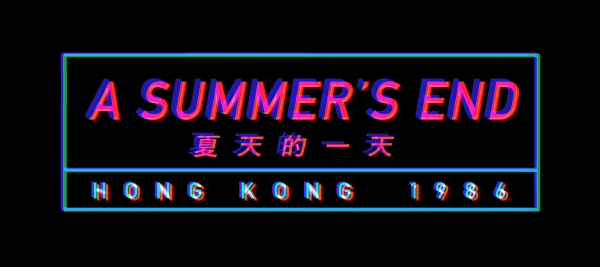Creating a soundtrack for A Summer’s End
The soundtrack for A Summer’s End is a hybrid of sounds. We cannot say that it is a true 80s soundtrack, but it is certainly inspired from 80s music. Some of the soundtrack was music we produced ourselves. Our soundtrack also features independent and contemporary artists such as Timecop1983, Stevia Sphere, and Crystal Cola. The soundtrack of A Summer’s End falls under various genres which include funk, Italo disco, electronic, retro synthwave, chill wave, and vaporwave. It’s important to note that some of these music genres are not originating from the 80s, rather they are contemporary music genres that take elements and inspiration from 80s music. Our choice of music was a conscious decision for us. We wanted to tell a new story of a past time in an original way using a new medium. However, that’s not to say we didn’t look for music that is period appropriate either. It was a balance of both in the game.
As a fun preview, here is a sample of two songs we wanted emulate the tone and mood in certain game scenes. An issue with using 1980s Hong Kong produced music is licensing and copyright. As we’ll mention further, many Cantonese produced songs during this time period are covers of existing songs. Obtaining the music license would have been too big of a financial and logistical hurdle for us. Deanie Ip’s 1982 released 輕輕嘆 is a cover of Dr. Hook’s Sexy Eyes. Douceurs Doux’s 1986 released 讓我 Fly like An Angel is a cover song of New Romantique’s Shy Like an Angel. Although you will not hear these songs in the game, we hope you can feel a similar mood of these song in the game.
The music scene in 1980s Hong Kong
The Hong Kong music scene in the 80s was a mix of cultures and musical styles. A Hong Kong magazine would feature a list of top charts separated by country of origin. For example, in the New Time Magazine 1986 issue, it has a spread of the month’s top Chinese language songs, top UK songs, top American songs, top Japanese songs, and top Hong Kong radio charts. Taiwanese and Mainland Chinese produced songs also found their audience in Hong Kong.
For the majority of locals, domestic Cantopop was probably their preferred music choice. The rise of Cantopop began in the 1970s, coinciding with increasing economic stability and growing cultural identity in Hong Kong. The 1980s marked the height of the cultural and economic output of Cantopop. It was a multi-billion dollar industry in its heydays. The musical careers of singers such as Jacky Cheung, Leslie Cheung, Andy Lau, and Anita Mui was major in propelling them to their superstar status in Hong Kong and Chinese-speaking Asia then in the 80s and now. It’s interesting to note that until 1995, Cantopop heavily featured Cantonese covers of existing songs from Japanese and Western composers. It was in 1995 that there was a localization campaign put out by Commercial Radio Hong Kong to encourage the creation of locally produced music in hopes to promote the consciousness of a local identity. However, the combination of factors such as 1997 recession, the tragic deaths of Hong Kong stars Leslie Cheung and Anita Mui in 2003, and the expanding Mandopop market that contributed to the eventual decline of the Hong Kong music industry.
Alongside the thriving Cantopop scene in the 1980s, was also the thriving disco and counter-culture scene in the 80s. It was disco fever in Hong Kong and numerous night clubs had opened during this time period. A key person in shaping the nightlife scene in Hong Kong during the 80s was Gordon Huthart who opened Disco Disco in Lan Kwai Fong and Andrew Bull who opened Canton Disco in Kowloon. “At a time when homosexuality was illegal, Huthart found it his calling in life to fight for his right to party.” We have to remember that dance and disco culture had been born from inner city gay nightlife at a time when homosexuality was still broadly criminalized. First opening in 1985, Canton Disco saw the rise of local and international stars in Hong Kong until it closed its doors in 1991.
It was notwithstanding to say that 1980s was a truly unique time for Hong Kong music and pop culture. Cantopop and Hong Kong pop culture was definitely influential in our creation of A Summer’s End. We hope we could rightfully portray this interesting time period in our visual novel. Our game is an homage to 80s culture, but it written as a reflection from the lens one looking to the past and future. There is an allegorical purpose for the setting of our story. Music too, as much as it can be an indication of time period and setting, is also a powerful story telling tool. We wanted it to most importantly heighten the emotion and characterization of the scene. Rather than focusing on a specific song or tune to set the period, we hope that everything we present in the game would cohesively work together in portraying culture and time of 1980s Hong Kong.







